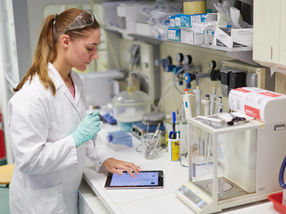Rude Behavior at Work Not an Epidemic
Prior research shows 98% of employees experience rude behavior at work, but that statistic may be misunderstood, according to new study
Rude behavior at work has come to be expected, like donuts in the breakroom. Two decades of research on employee relationships shows that 98 percent of employees experience rude behavior at work, but now a new study suggests a large majority of workplace relationships are not characterized by rudeness. Isolated incidents of rude behavior at work, although somewhat common, do not point to widespread incivility between employees and their colleagues, according to a new UCF study.

Study finds that an employee’s perceptions about how their colleagues should treat each other have a stronger impact on rude behavior than an employee’s perceptions about how their colleagues actually treat each other.
University of Central Florida
“Because prior research suggests workplace mistreatment is harmful and widespread, it is often called an epidemic, but our findings show that rude behavior is less like the flu and more like cholera,” says Shannon Taylor, an associate professor of management and co-author of the report. “It is still harmful, but far less common, and outbreaks are often traced to a single source – much like a contaminated water pump.”
While the study was conducted prior to the COVID-19 pandemic, Taylor says his team’s findings are just as applicable to remote work environments. Collaborating remotely presents a variety of challenges that can lead to miscommunication and misinterpretation.
“As employees return to work on-site, our study suggests developing and maintaining good relationships with co-workers is important now more than ever,” Taylor says.
The study, co-authored by UCF doctoral student Lauren Locklear, was published this month in the Journal of Applied Psychology. The project takes a closer look at the influence of workplace relationships on disrespectful behavior in the office.
The study examined rude behavior among restaurant, manufacturing and office workers. Researchers found that while most employees experience rudeness at work, these experiences came from a small number of co-workers. Although 70% of employees experienced rudeness at work, only 16 percent of workplace relationships were characterized by rude behavior.
An employee’s individual personality, position and other traits are major factors in determining the level of incivility present in a given workplace. Across all study groups, researchers found that unique relationships between colleagues have just as strong an influence in determining whether workers will be rude to one another.
“Even if one employee is a jerk to everyone and their co-worker is the office punching bag, there is still something about their unique relationship that explains how well they get along together,” Taylor says. “Most people do experience rude behavior, but most of their relationships are not characterized by rudeness.”
Behavioral expectations and workplace culture also play a key role in influencing employee mistreatment. But an employee’s perceptions about how their colleagues should treat each other have a stronger impact on rude behavior than an employee’s perceptions about how their colleagues actually treat each other.
“Employees’ beliefs about what is ‘right and wrong’ at work have a big impact on what happens on the job,” says Locklear. “Employers should ensure there are strong norms for respect and civility in the workplace. Having a zero-tolerance policy for these rude behaviors is key to stopping mistreatment in its tracks.”
Being clear and encouraging positive interactions will be key, the study’s authors say.
“Our prior work shows gratitude and appreciation are important aspects to fostering positive employee relationships and decreasing negative workplace behavior,” Locklear says. “Expressing these positive behaviors will be essential in determining how smoothly we return to in-person work environments.”
Other study authors include: Donald H. Kluemper, an associate professor in University of Illinois at Chicago’s Department of Managerial Studies, and Xinxin Lu, a Ph.D. student at University of Illinois at Chicago’s Department of Managerial Studies.





























































